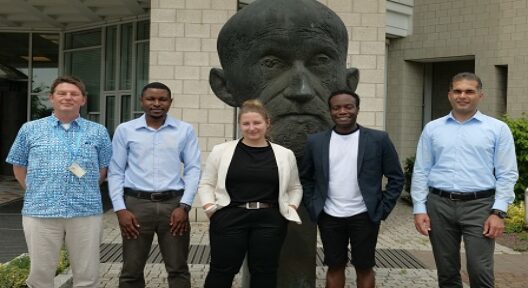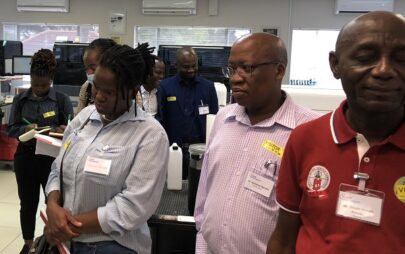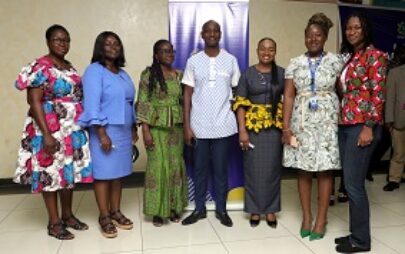BloodTrain
Availability, Safety, and Quality of Blood and Blood Products: Supporting the Development of a Regulatory Structure and its Adaptation to Crisis Situations in Project Countries

Short Description
Blood and blood products are important medical products, acknowledged as indispensable by the World Health Organization (WHO). However, in many African countries, there is a deficiency in both the quantity and quality of available blood reserves. The procedures for performing, processing, storing, and testing blood donations are often inadequately regulated or monitored, or may even be entirely omitted. Consequently, this significantly heightens the risk of transfusion-related transmission of HIV or hepatitis viruses.
The BloodTrain team is supporting African project countries in developing further capacities to improve access to safe blood and blood products for patients. A key element in this context is a functioning regulatory structure, which guarantees the availability, safety, and quality of blood and blood products. In addition, countries should be equipped to respond effectively to crisis situations with sufficient safe blood supplies.
As part of the project, employees at the Paul-Ehrlich-Institut (PEI) are comprehensively trained to analyse local conditions in African countries and to take appropriate measures in dialogue with local authorities and blood transfusion services, as well as to establish comprehensive, structured training for African colleagues (train-the trainer principle).
Aims of the Project
- Improving the availability, safety, and quality of blood and blood products
- Supporting the establishment of a regulatory structure and its adaptation to crisis situations in project countries
- Supporting the establishment of a regulation of in vitro diagnostics for safe and reliable blood testing
- Establishing a harmonised regulatory system for medicines throughout Africa in cooperation with NEPAD (New partnership for Africa’s development)
Infos about our Approach
Benchmarking: BloodTrain investigated the extent to which a regulation system for blood and blood products as well as related medical products and in vitro diagnostic devices (IVDs) is present across ten African countries. The results of this benchmarking demonstrated that manufacture and monitoring of blood and blood products are practically unregulated. For this reason, the BloodTrain team prepared customised development plans for each country.
Pilot Project Countries Programme: BloodTrain supports five project countries in developing and implementing regulatory structures for blood and blood products. To achieve this, individual training and specialised workshops for training in central regulatory aspects, such as the inspection of blood establishments, setting up a reporting system for adverse effects during blood transfusions (haemovigilance), the marketing authorisation of blood and blood products, and the regulation of in vitro diagnostic devices and plasma derivatives are carried out.
African Blood Regulators Forum: BloodTrain was instrumental in supporting and driving the establishment of this platform for blood regulators to exchange their knowledge and experiences. The PEI contributes its knowhow as associated partner on a long-term basis. The forum develops harmonised standards in blood regulation and is committed to implementing these standards across Africa.
Regulatory programme: In cooperation with the Africa Society for Blood Transfusion (AfSBT), the aim is to increase the acceptance for blood regulation in blood establishments. BloodTrain trains their staff and establishes contacts with the regulatory authorities.
Last update: December 2022
Facts
Publications and Presentations
- Implementation and performance of haemovigilance systems in 10 sub-saharan African countries is sub-optimal (Samukange, W.T., Kluempers, V., Porwal, M. et al.), in: BMC Health Serv Res 21, 1258 (2021).
- Regulation of blood services in Africa (J.K. Ansah, Ch. Kafere et al.), in: Transfusion Clinique et Biologique, online first 28 January 2021
- Implementation of Blood and Blood Product Regulation Training Workshop (Ch. Kafere et al.), in: Africa Sanguine, Vol. 22, No 1 (2020)
- Selection of Blood, Blood Components, and Blood Products as Essential Medicines in 105 Low- and Middle-Income Countries (Washington T. Samukange et al.), in: Transfusion Medicine Reviews, in Press.

